Dandelion has had a problem with her eggs right from the start of laying six months ago. She has always been clueless about when she is about to lay and many of her eggs have been laid in the run.
She would sit in a nest box then later lay an egg in the run or lay an egg in the run and then sit in a nest box. All the eggs that she has laid in the run have been broken. Many of her eggs have been laid first thing in the morning in the chicken shed and most of them have been broken too.
Her egg shells are really thin. I tried giving her crushed egg shells in some mash and she laid one egg, unbroken, with a good shell then the next egg was broken again. Luckily her eggs are small, only Apricot lays smaller eggs, and she always manages to get them laid and doesn’t seem to suffer any ill effects.
However recently she has started laying more frequently. She was only laying about two eggs a week but for the last two weeks she has laid every other day so I decided to try again with the crushed egg shell in mash. As luck would have it Dandelion seems to really like this and kept returning to the mash. I used four little egg shells from the weekend breakfast and have been doing this each weekend.
At last it seems to be working and for the last two weeks her eggs have been unbroken and she has laid them in the nest box or in the chicken shed first thing in the morning. I now wonder if she has not been going to the grit and now I think about it I realise that I have never seen her go to the grit like the other girls do.
Maybe she likes the eggshell mash so much because she senses that she needs it. I am amazed and so pleased that this seems to be working. I was sceptical because Amber, my bantam vorwerk, had an egg laying problem right from the start of laying. Her eggs shells were really soft though. Luckily she didn’t lay more than a couple of times a week. I tried crushed egg shell with her and also limestone flour and cod liver oil to help with the absorbing of calcium but it never, ever, made a difference.
After having her for two years I found her dead in the pop hole entrance one morning. It was a shock as she had been fine at bedtime the evening before. She is buried in the chicken strip with Rusty next to her. They are the only two of my girls to have passed away at home.
I always felt that it was something to do with Amber’s egg laying problem that had caused her death. I felt that there must have been something internal that wasn’t quite right that was causing her problem.
Dandelion hasn’t been as bad as Amber was but I still worried about an egg breaking inside her as I used to worry with Amber. I will be thrilled if this has cured her problem and would be happy to do this on a weekly basis if it continues to help her.
As you can see Dandelion is having a good go at the mash. It is great for us to be able to eat her eggs at last.

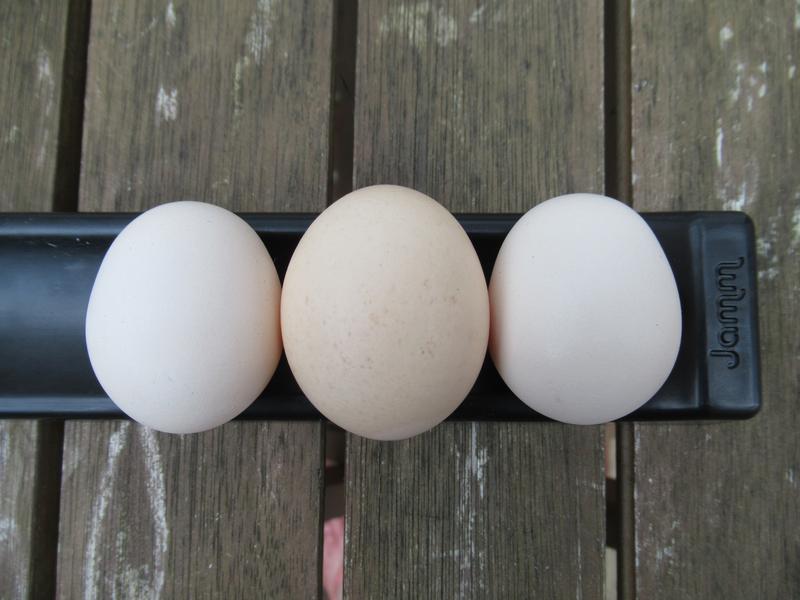
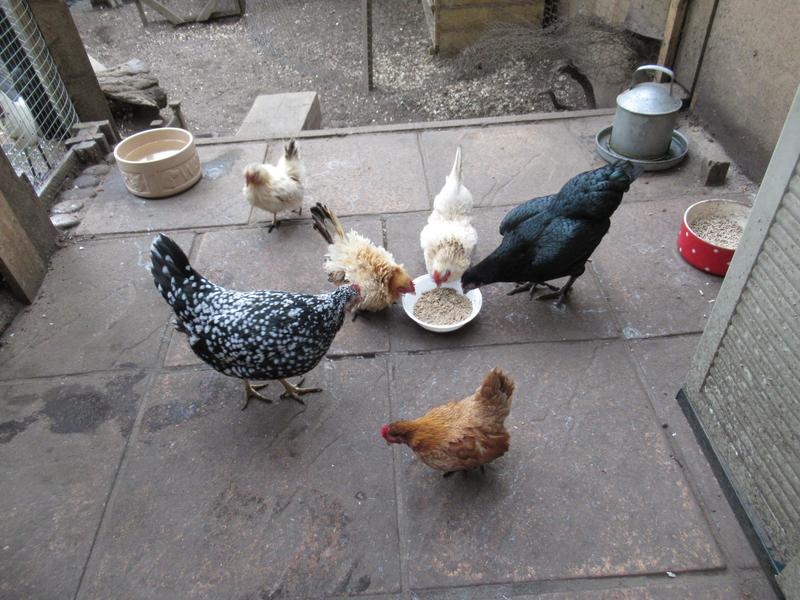
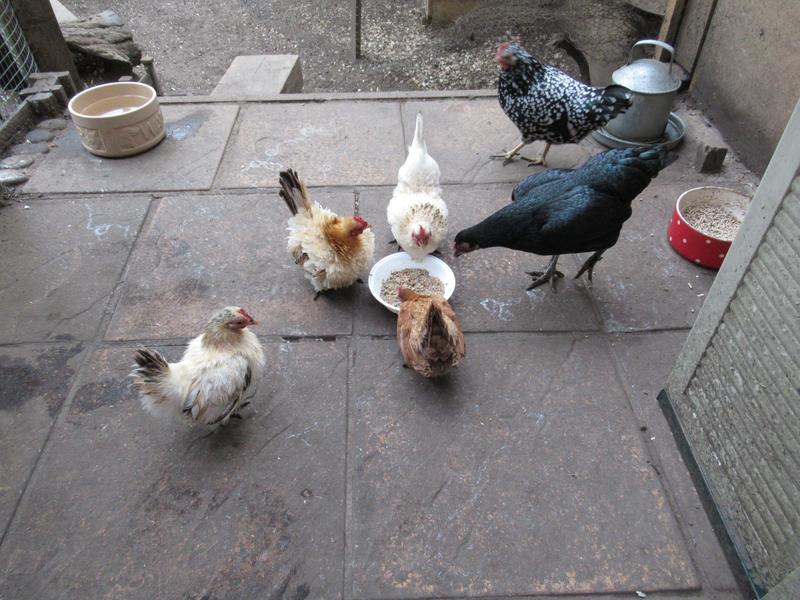
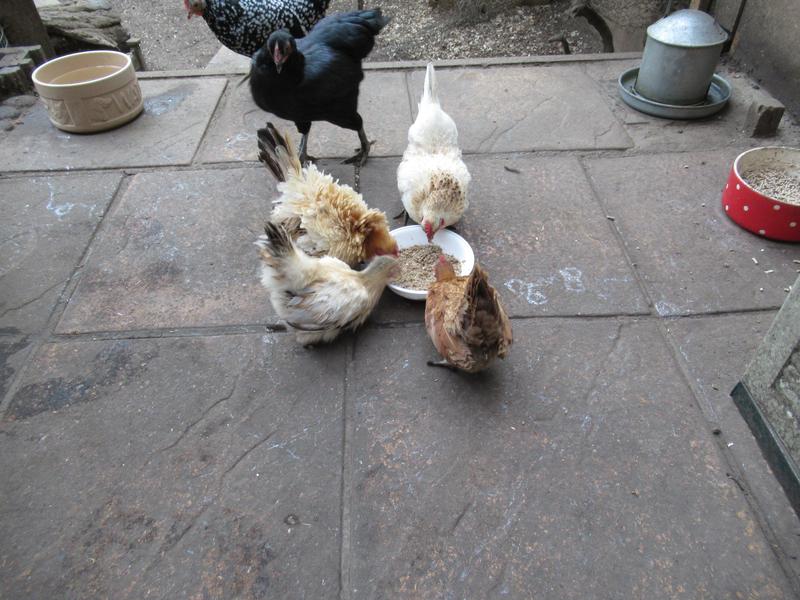
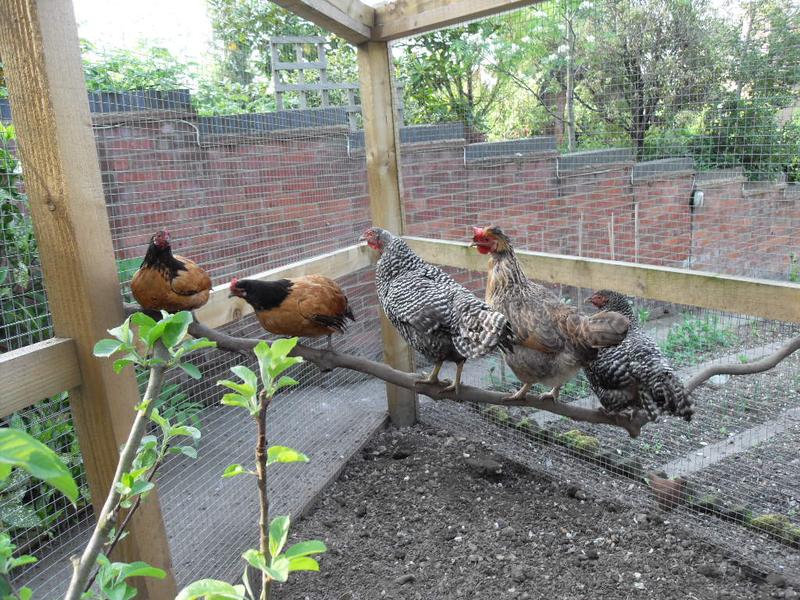 Click here to see the history of my flock.
Click here to see the history of my flock.
Good that you know how to sort these problems out.
In theory I know the things that can help but it doesn’t always work as in Amber’s case. I thought it was worth persisting with Dandelion though and now it seems to be paying off. It’s the first time in months that we have been able to keep her eggs.
That’s really good news, Carol – always a huge worry if they have any sort of difficulty in the egg-laying department.
You are so right. From all my research egg laying problems are the biggest cause of problems with chickens, oddly enough. Even with Rusty the vet thought it was an egg problem that lead her to the prolapse in the first place. It was an egg problem that lead to losing Amber and I knew it could also be a future problem for Dandelion too. If I can sort this out for her maybe I can save her. We can only do our best for these girls and unfortunately there are always hurdles along the way but we have to just do our best to try to help them through. I just hope not to lose another girl if there is any thing in my power to stop to that happening.
I wonder if pure breeds are more inclined to have issues than hybrids with hybrids being bred with the intention of laying?
This is a tricky one. I have read that hybrids are bred for egg laying and therefore can wear themselves out quickly from lots off egg laying. Yet pure breeds can have issues due to their pure breeding. I had read that a chicken could lay lots of eggs and live a shorter life or could lay less eggs and live a longer life. Now I am not sure about the long life of a chicken. I think that the jury is out about hybrids and pure breeds. I am really not sure any more which should be longer lived. My husband thinks that seramas are not terribly robust and therefore may be shorter lived. My research shows that they may be long or short lived much like any chickens but I am inclined to believe that they are less likely to be long lived than some of the larger types. It seems from my research that the smaller the chicken the shorter the average life span. There is no short answer to this as there are always exceptions. I have championed the pure breed in the past but now in truth, I just don’t know.